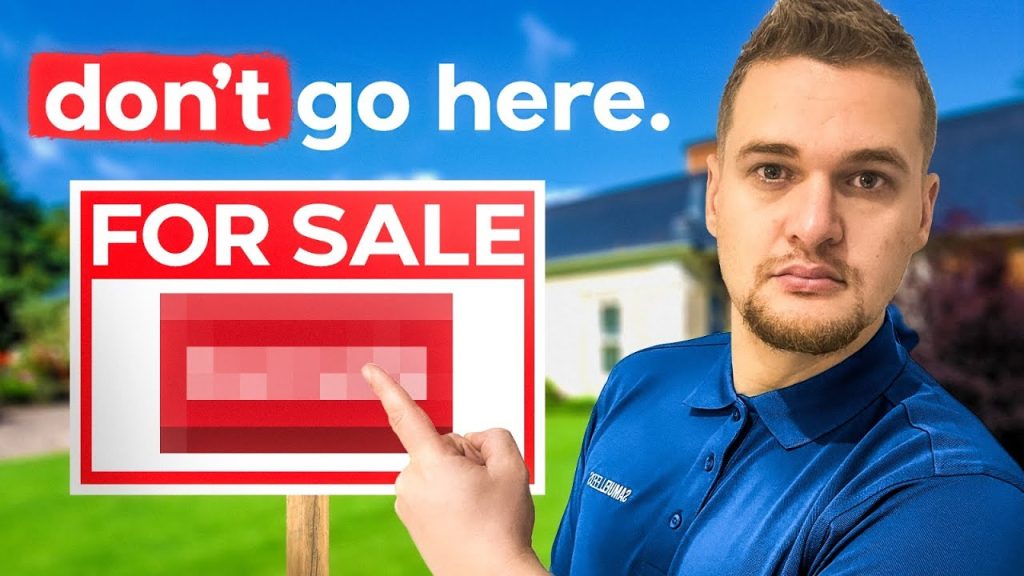Samuel Leeds describes them as the king and queen of the buy, refurbish, refinance strategy. After completing his training David Ford and Katie Cracknell went on a spending spree, snapping up eight houses to add to the two they already owned. They purchase rundown houses, do them up and make thousands of pounds a month from renting them out, recycling their cash in the process. After two years in the business, they are already property millionaires while still working full time and bringing up a small child.
‘The stinkier the house the better’
David and Katie bought their first investment property before they knew anything about the buy, refurbish, refinance strategy. The plan was simply to rent it out to give them a retirement pot.
“We didn’t know much when we bought our first one, but we knew to buy the worst house on the best street. That’s what we did for the house we lived in. Three years later we managed to pull about £70,000 equity out of it. That was how we started,” recalls David.
After finishing their first project and enjoying it, Katie suggested they get training. David agreed and came across Samuel Leeds’ YouTube channel.
“We thought his videos were brilliant. We learned a lot. We got a bit obsessed. Every time we came in from work, we were eating dinner and watching him,” says David.
Having ploughed their way through all the content, the couple came to the live events and then paid for further training.
“Our approach is we buy rundown properties – the stinkier the better as we learnt on Samuel’s training – and then we push the value up. We pride ourselves on giving nice refurbs. We like the extra finishing touches,” David adds.
Having increased the worth of the property significantly, they then remortgage it to its new value which releases capital, enabling them to recycle their money for more acquisitions.
Before making a purchase, Katie and David carry out viability checks to ensure there is enough profit in the deal. The first step is to work out the likely gross development value after the property has been improved.
This is estimated by looking at the square footage and then finding out how much houses of the same size are selling for within a mile radius of the location. After deducting the refurbishment cost, the purchase price and legal fees this indicates what profit to expect.
Katie says they need to achieve a minimum margin of 25 per cent to obtain finance for the deal. It helps that Katie owns a kitchen, bedroom and bathroom manufacturing business as it means they get excellent prices on products. They also benefit from the firm’s knowledge and expertise on the fittings side – as well as Katie’s experience as a project manager.
Since their training they have bought eight properties, including three in 2023 and four the year before, bringing the number of houses in their portfolio to ten. “One we bought previous to the training and the other we’re living in,” explains David.
Some are in the Midlands and others are in Wales. Katie says: “The ones in Wales we’ve sourced purely because it’s easier to source them rather than driving all the way to Wales and doing the viewings. We still do research if we get sent a deal.”
They secured the Midlands properties mainly by approaching the seller directly. One of these purchases came about in unusual circumstances and led to them pulling off multiple deals.
‘We secured three properties from a cardboard cut-out’
As property investors, David and Katie have learnt to be constantly on the lookout for opportunities.
David was out walking his dog one day when he saw a cardboard for sale sign in a window. It was a chance to grab a bargain. So, he contacted the vendor.
It turned out the owner had lost his son and no longer wanted the house. “He didn’t have the heart to be a landlord anymore. Then he said I’m selling two more on the same street.
“They were round the corner from where we lived. He never said what he wanted, so we offered £75,000 per property. Then he said he wanted £80,000 per property. We thought that was a fair deal.
“So, we secured three properties in one go from a cardboard cut-out.”
More properties followed. Katie was on one of their sites working on a refurbishment project when she saw there were two houses across the road which were ‘bugging her.’
With nothing to lose she decided to find the owners of the properties which were next door to each other and sent them a letter of enquiry.
“I didn’t expect anything back. A week later the owner rang me. We’ve had your letter. We’re interested in selling. Great. So now we own five on one road.”
All five are in the Derby area and within walking distance of their house.
In their experience the best deals are the ones which have not been listed online as there is a lot of competition.
“Sometimes for us it might be worth waiting a bit longer just to get an off market one.”
Even if it means sending out 300 letters, there is the chance of getting ‘one winner.’
The entrepreneurs agree with Samuel Leeds that once you have been trained in property you cannot drive anywhere without stopping the car to look at a derelict or empty building. They keep letters in the glove box which they have written in advance to give to owners.
“It’s a direct to vendor letter saying we’re interested in your property. If you don’t want to sell it now, it doesn’t matter. Keep this in your drawer and if you need it in two years come and speak to us. There’s no pressure,” says David.
Katie says it is surprising how many people have a property they don’t want. She and her partner are hoping to obtain their first lease option on a house which another tired landlord offered them.
This would give them an option to buy the property, near the university in Leicester, down the line. They have agreed to pay the mortgage on it for five years and take care of the maintenance, except for roof repairs or structural issues that might occur.
Explaining how they have structured the deal, David says: “If there’s not a tenant there they don’t have to worry. We’re paying the mortgage fee regardless. It’s on us to get a tenant. We also look after the insurances and the contract. So, for them they’ve got no worries.
“We’ve agreed a fixed price in five years. If the market goes up or down, we pay that fixed price, but we’ve done our due diligence in the area. We know that the growth’s good.”
The purchase price in five years is £150,000 and there is a deposit of £1,000 to pay to legalise the agreement. The mortgage comes to £535 a month and they expect it to rent out for £900 to £1,000 in the same period.
“It’s a good deal and we’ve still got a couple of hundred pounds to put towards the deposit,” says Katie, adding that similar properties are selling for £180,000.
‘We made a profit of £100,000 for four months’ work’
The BRR transaction which sticks in David’s mind is the two properties which Katie found. The owners bought them with the intention of doing them up, but then decided to sell them.
However, it took a year to complete the sale after a series of unforeseen delays which resulted in them having to pay an extra £1,000 to secure the mid-terraced houses.
Katie says they knew it was worth it because they purchased each one for £80,500 and then refinanced them at £170,00 per property. Each refurbishment cost £40,000.
They bought the houses in Derby with a bridging loan and obtained development finance for the work. The deposit came to about £40,000 for them both.
David says it was a learning curve for them as they were expecting to receive the development funding in segments which turned out not to be the case.
“I don’t know if we weren’t informed properly or didn’t understand properly but it worked out that they were only going to give us a percentage of what the property was worth at a certain stage. Luckily, we had a buffer and we kept going,” says Katie.
Their persistence in the face of this challenge paid off. Their profit amounted to £100,000 for four months’ work. Rather than selling up, they opted to go for the cash flow from letting them through their company, D K Rental Properties.
Katie says: “We wanted to keep the asset and the monthly cash flow. It rents out for £875 per property.”
The couple also recouped the £40,000 deposit when remortgaging the properties and paid off the development and bridging finance.
They bought another terraced house across the street for £80,000. There was no stamp duty to pay as it was uninhabitable with mould in the bedrooms. After refurbishing it for about £10,000, and paying out an extra £2,600 on associated costs, it doubled in value.
“That one got revalued at £160,000. We knew the area very well. It is a great area for equity,” David points out.
The pair pulled out 75 per cent of the £160,000 valuation in the refinance which gave them all their cash back, plus a tax-free sum of £24,000 to reinvest.
‘Our assets are worth just under £2m’
David and Katie love the BRR strategy because of the equity it unlocks and the rental income. “The lowest is about £200. Anything less we wouldn’t go near. We’ve got one in Wales where the cash flow is £640 [per month]. It varies,” says David.
In total, their assets are worth just under £2m, he reveals. Having a one-year-old child to look after and being in work full time means their schedule is a busy one.
Katie, who was pregnant when she started her property training, says time management is crucial.
“Once a week we’ll sit down and say what our aims are for this week. Then we say Monday night we’re doing this, Tuesday night that and so on.”
David keeps the calendar on his phone and marks off tasks in green when they have been done.
He appreciated Samuel Leeds’ training technique. “I’m in a corporate world where everything’s got to be politically correct. His training was straight to the point. That was new and refreshing for me to see that style of learning.
“If you’re not performing, he’ll tell someone they’re not performing, or you need to do this. That’s how I learn best.”
Katie says she and David work well together. “I’m like go get, whereas David is like hold on Katie double check this or smell the roses a minute and then we’ll go. That’s why we’re a good team.”
Their next project is to convert a three-bedroom property, which they are in the process of buying (March 2024) again for £80,000, into a five-bed HMO. They have agreed a five-year contract with the local council to provide social housing.
With the refurbishment expected to cost £35,000 and a projected end value of at least £172,000, Katie and David hope to again be in the money.
David and Katie’s tips
- You need to be educated in property.
- Work hard and learn to manage your time well.
- We only refinance a property when we know the rent is going to more than cover the mortgage payments.
Samuel Leeds’ verdict
“David and Katie are finding some brilliant deals. They’re like the BRR king and queen. The way to scale big is now to partner with people collaborating on bigger deals which they’re now looking at.”






